
Transcription
CRASH
Sunday
July 19, 2015
I just watched a tremendously good movie the other day. It was one of those movies that seemed to be telling a number of seemingly unrelated stories but which, through clever directing, revealed they were all in fact woven together. To retell all of them, while certainly possible, would take up far too much room and worse, wouldn't even come close to doing any justice to the movie I just finished. That being said though, there was one story in particular, with a message so powerful, that it really struck a chord.
This particular part of the story focuses on 2 different sets of characters. The first is a Persian mini market owner and his family, the second is a young Mexican father and his family. The Persian is having problems with his store being robbed and vandalized by some geographically and racially insensitive individuals. In response, the Persian father goes to his local gun store to buy a handgun, where he has to deal with yet another ignorant and racist individual. After being accused of trying to buy a gun to carry out some sort of Jihadi on American soil, the gun store owner has the Persian father removed, but the daughter stays, demanding that either the money be returned, or the owner provide the gun and the ammunition, that her father paid for. In response, the owner hands her an unloaded weapon and asks her what type of ammunition she wants. Not knowing the difference, she does what any person should, and asks for an explanation, to which he condescendingly responds, listing the different types, but not what makes them different. Exasperated, she gives up, saying to just give her anything that gits. He hands her a box and she leaves, without further incident.
The Mexican father is a locksmith by trade. During the movie, he makes a number of calls and during each, he's discriminated against by his customers, the very people who've called upon him for his assistance, viewed with suspicion and treated with outright hostility. Each time it happens, he demonstrates an extreme amount of patience and politeness, until finally getting fed up and returning their money, walking out in anger.
The locksmith, his wife and his 5-year old daughter, have just moved, the result of a stray bullet coming through his 5-year old daughter's window, and he's worried about her, so he stops by to look in on her before heading out to his next call. When he comes into her bedroom to check up on her, he sees that she's hiding underneath of the bed, terrified because she heard what she thought was a gunshot. Instead of asking her to come out from under the bed so he can talk to her, he instead lays down on the floor, next to the bed, so he can be on her level. They lay there, talking to each other, and she expresses her fear about another bullet coming through her window, or worse.
The scene is a touching one, in which a father is trying his best to reach out to his terrified little girl, to connect with her on an emotional level and provide the reassurance she so desperately needs. As they lay there talking, a lightbulb goes off in his head, and he smacks his forehead in exclamation, remarking how he'd completely forgotten all about what he'd promised someone. He sparks the child's interest, and when she asks him to explain, he pauses for effect, and then states that he'd tell her, but he doesn't think she'd believe him. By now, he's completely captured her attention, and she responds by promising that she will indeed believe in him, so he starts telling her the story about how, when he was just 5 years old, he was visited by a fairy who - and she immediately cuts him off in disbelief.
As you can imagine, the father is trying to come up with something to reassure his daughter, and he refuses to allow himself to be deterred, especially now that he's come this far. So he starts laying it on thick, claiming that he knew she wouldn't believe him, so he makes as if he's not going to continue. Finding herself caught up in the story, the little girl apologizes, begging and pleading with him to continue, so he does, and a master story teller he turns out to be. He spins a tale about a fairy with little stumpy wings who could barely fly, and by the time he's done, he's completely convinced his little girl that he was visited by a fairy, but not just any fairy. This was a fairy who'd visited him to give him a special gift, an invisible cloak that's impenetrable to things like bullets.
He asks the girl if she knows what "impenetrable" means, but of course, being only 5 years old, she doesn't. So he takes times to patiently explain, saying that it means that nothing can get past it, making the wearer unable to be hurt with any bullets. By this time, she's sitting on top of the bed, and he asks her if she wants to feel the cloak. When she reaches her arm out and touches him, she remarks that she doesn't feel anything, and he responds, saying how remarkable the cloak is. He continues, saying that the fairy made him promise to give it to his daughter on her 5th birthday, but that he'd completely forgotten. When he asks whether or not she wants it, she responds, saying that she does, so he slowly and patiently unties it before tying it around her. When he leaves, she's feeling much better, safer, able to sleep in her bed rather than underneath it, so he continues on to his next call, the Persian owner of the mini market.
After fixing the lock, the locksmith attempts to explain to the Persian that the fixing of the lock is only a temporary measure, that the door itself needs to be replaced. But the Persian gets upset, accusing the locksmith, in his limited English, of trying to scam him into paying more money. He continues, saying that he bets the locksmith just so happens to know someone who can fix or replace the door, for a fee. But the locksmith doesn't, and tries to explain. The Persian is upset, his anger is not with the locksmith, it's with the hoodlums who keep vandalizing and robbing his store, but it's the locksmith who feels the brunt of it. Finally, tired of being lashed out at, not just with this call but with his last several calls, tired of being stereotyped, the locksmith yells at the Persian, and tells him to forget about paying for the repairs. On his way out, he again tells him to fix the door. The Persian's response is one of complete anger. The emotions of everything he's been going through have just bubbled over, and he screams and yells, without effect, to the back of the locksmith as he leaves the store. The next morning, when the store owner comes in, the store is in complete shambles, destroyed by vandals, who've scrawled obscene messages about how this Arabian family needs to leave, although they used different words. The mother is upset and hurt by what was done to the store, and dismayed at the fact that people are discriminating against them for being Arabian, when they're Persian.
After the initial frustration, the Persian father calls the insurance company. After asking a few questions, they tell him that they're not going to be covering any damages because it was an act of negligence, due to the father's failure to replace the door as instructed by the locksmith. Understandably, the father's furious. His store lies in shambles, his life's dream ruined. Understandably, he's hurt, angry, and he wants justice. But instead of seeking justice, he gets his gun and sets out to seek revenge. Where most people seeking revenge would have sought the hoods who vandalized his store, he chooses instead to seek the locksmith. After a short time, he finds out where he lives and camps outside, waiting for him to come home.
Eventually the Mexican father returns home and the Persian father immediately gets out of his car to confront him. He pulls out the gun, demanding that the Mexican father pay him for the damages to his store.
By now, the little girl realizes her father's home and she's standing at the door, calling to him, not yet realizing that a strange man has a gun pointed at her father's forehead. When she does, she begins shouting for her mother, saying, "He doesn't have it, Mommy! I do!" Her mother, still not yet sure of what's going on or what in the world her daughter's talking about, comes out of the kitchen, asking for an explanation. The little girl responds, saying that she has her father's impenetrable cloak, but in her youth, the long word proves to be too difficult for her and she runs out the door, headed for her father.
Too far away from the door to see what's going on outside, the mother still freaks, fearing that her child is about to run into the street and be hurt, but it's not for the street that she's headed. It's for her father, and upon reaching him, she doesn't waste a moment jumping into his arms, just as the Persian father, distraught and overwhelmed by frustration, pulls the trigger. At that range, it's absolutely impossible to miss, and the Mexican father screams his pain at seeing the gun go off into his daughter's back. A moment passes, and he starts twisting and turning his daughter around, searching for the bullet hole that he knows is sure to be there, but he can't find anything. By now, the mother's realized what's going on and is by his side, where they both carry their daughter into the house. As they do, you hear the little girl whispering into her father's ear, "Don't worry, I'll protect you, Daddy!"
The Persian father stands there, completely dumbfounded as a range of thoughts and emotions play out on his forehead, like a movie on the screen. Had he actually just pulled the trigger on someone? Had an innocent little girl just jumped in between his gun and its intended target? Had he just witnessed a miracle by her not being hit with the bullet? What happened to the bullet?
Of course, the little girl knows what happened. After all, she hadn't taken off the impenetrable cloak her daddy had given to her, so she wasn't confused whatsoever. Later on in the movie, you see the Persian back at the store, now partially cleaned up but still destroyed, and as the drawer for the gun is pulled out and the gun put away, you see the writing on the box of bullets. It says "BLANKS".
To me, that child's actions epitomize the true meaning of the word "love". Some would argue that this is because she threw herself into the path of a speeding bullet without a moment's hesitation, and while that indeed says a lot about her and the way she feels about her daddy, to me the true statement comes in the faith she had in him and what he told her. Despite all of the evidence to the contrary, she believed him when he said that he had a magic cloak for her, capable of protecting the wearer from bullets and given to him by a magical creature. In fact, she believed in him so strongly that she was willing to put her belief to the ultimate test by intentionally putting herself between her daddy and a bullet. That kind of faith and devotion is, to me, what love's all about. So why is it that when we grow up, we seem to lose that childlike faith and innocence? Why is it that we no longer possess the capability to trust and believe in those we love, even when everyone else is putting forth arguments and evidence to the contrary? As adults, we're willing to accept even the worst of things said about those we profess to love, leading me to wonder whether or not we ever really loved them in the first place.
This is the kind of love that I have within me to share, seeking only a woman to share it with, and if she's capable of returning only a small fraction of the love I have to share, then I'll consider myself to be an extremely fortunate man indeed.
Which got me to thinking... I'm a "spiritual" person, not a "religious" one. To me, "religion" is Man's interpretation, and use, of the Higher Power (whatever form that Higher Power happens to take), to control the masses, while "spirituality" is your personal relationship with that Higher Power, which includes the way you live your life. That being said, isn't this the same sort of love that God is looking for? For someone who trusts and believes in Him with such conviction that they retain that love and faith , no matter what the arguments and evidence presented to the contrary? It seems like such a simple thing to give him, but it's not, is it? Unlike the little girl in the story told above, we have to trust and believe in someone we've never seen, never met and have no concrete proof one way or the other. It's incredibly difficult, especially when the going gets tough, and keeps going that way. Traditionally, we need to meet and spend time with someone for awhile before our love for that person grows, the exception being our children, whom we love regardless; regardless of what they do, regardless of whether or not we ever met them or how much time we've spent with them. But when it comes to God, those rules, those traditions, they all go out the window and we're asked to place blind faith in a concept we can't prove or disprove, and the rewards and consequences are immense, bigger than anything we could ever imagine. It's definitely food for thought.
Shawn L. Perrot CDCR# V-42461
MCSP Cell# C13-219L
P.O Box409060
Ione, CA 95640
Other posts by this author
|
2020 aug 12
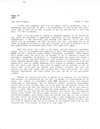
|
2020 aug 12
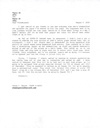
|
2020 may 30

|
2020 may 30

|
2020 may 30

|
2020 may 24
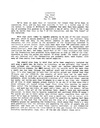
|
More... |
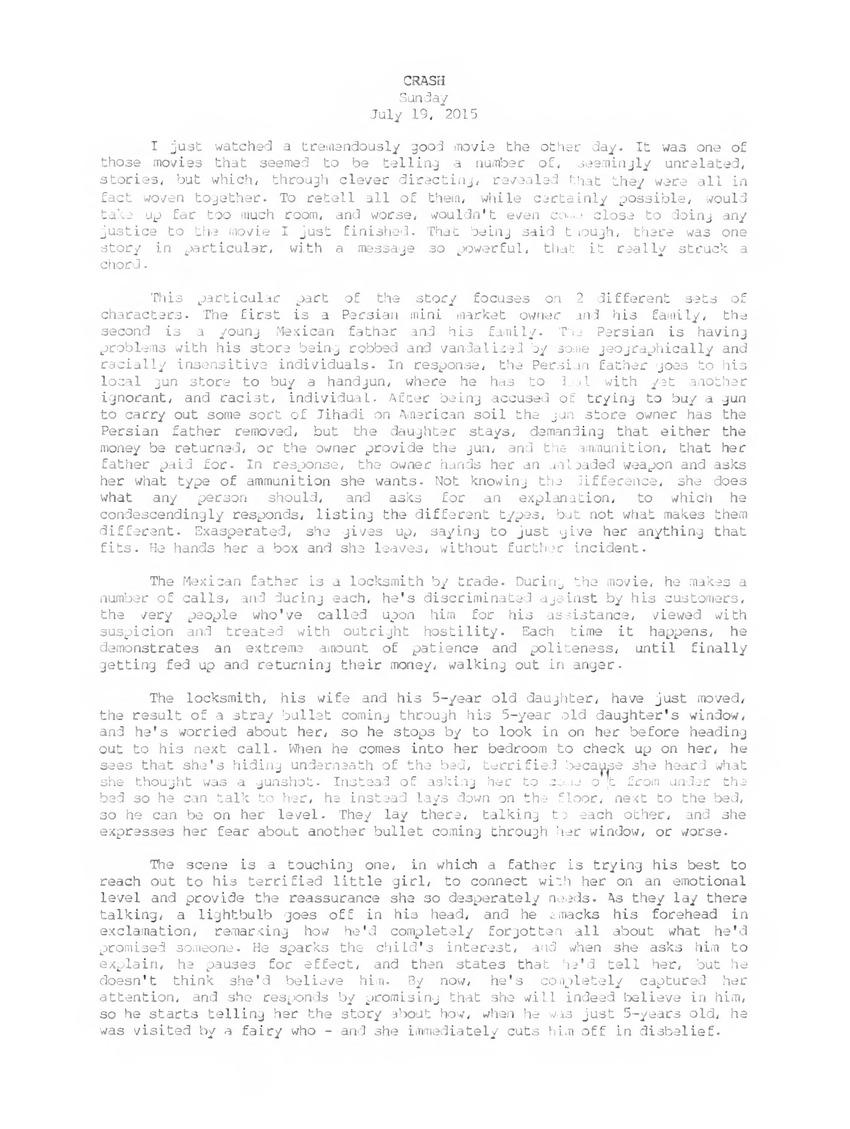
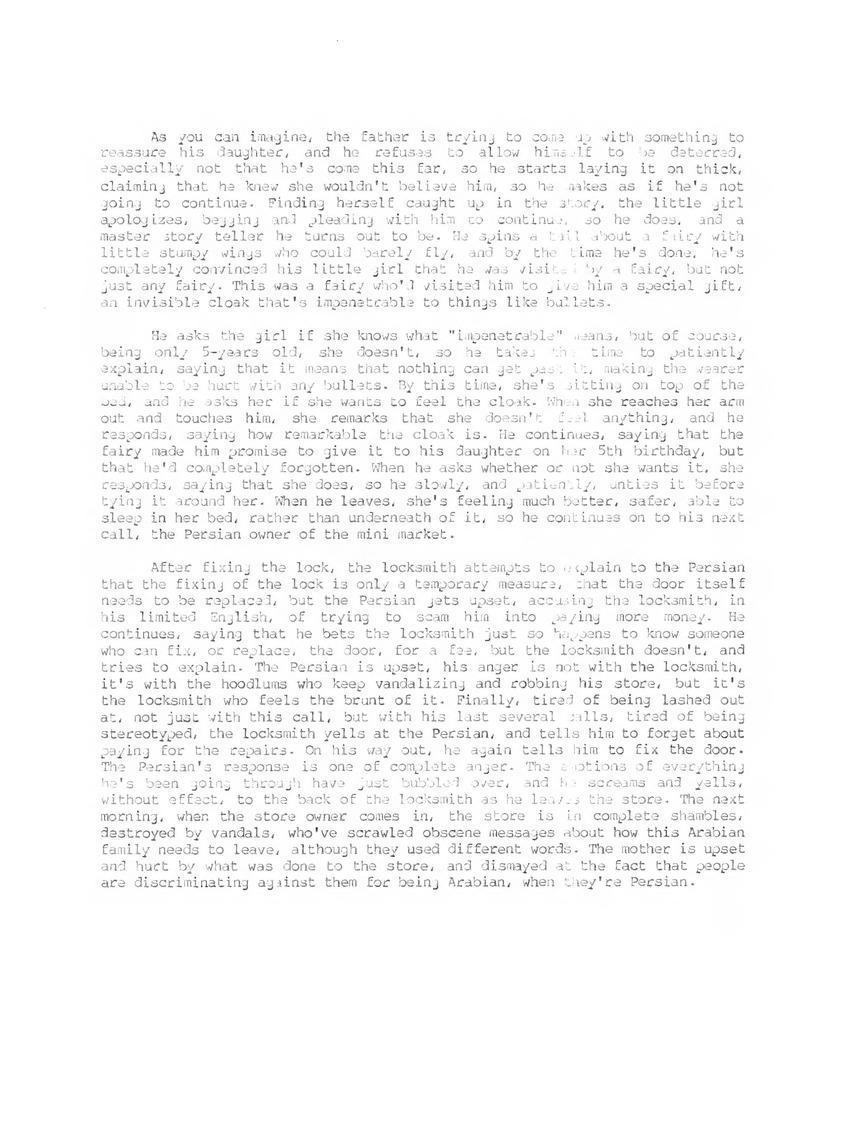
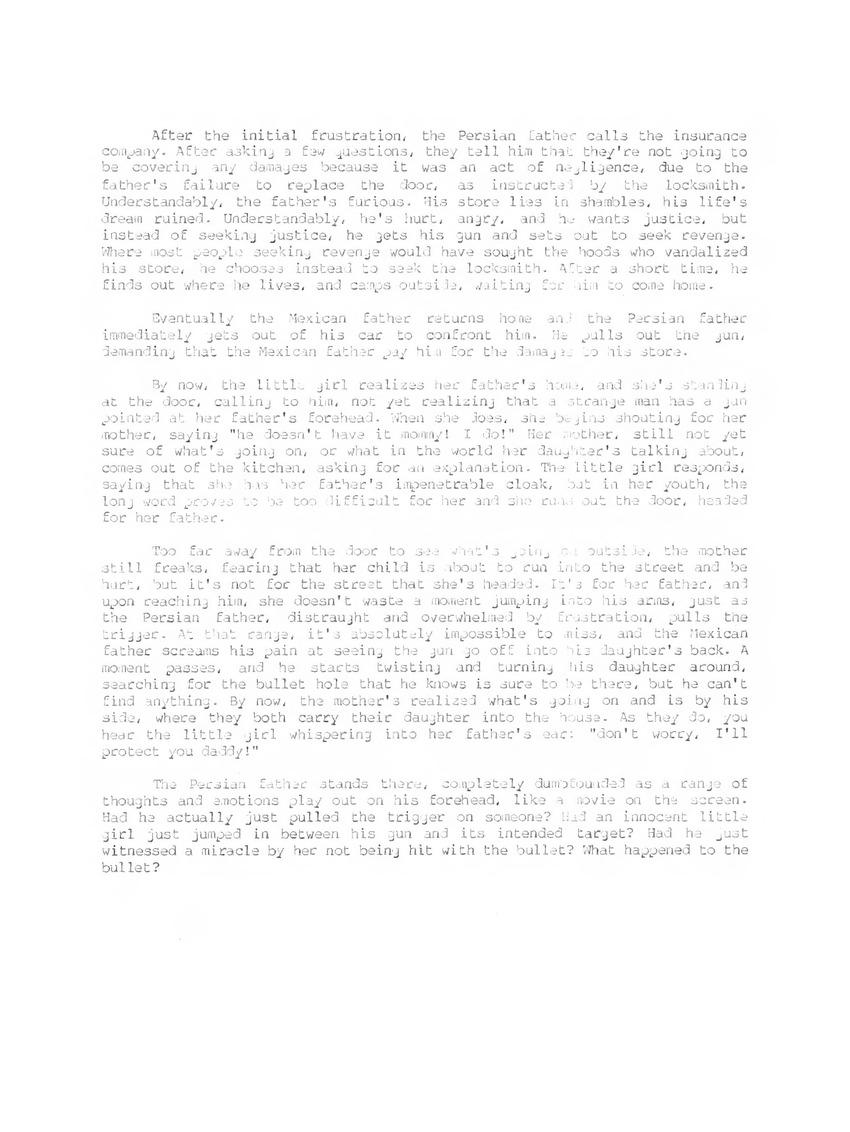
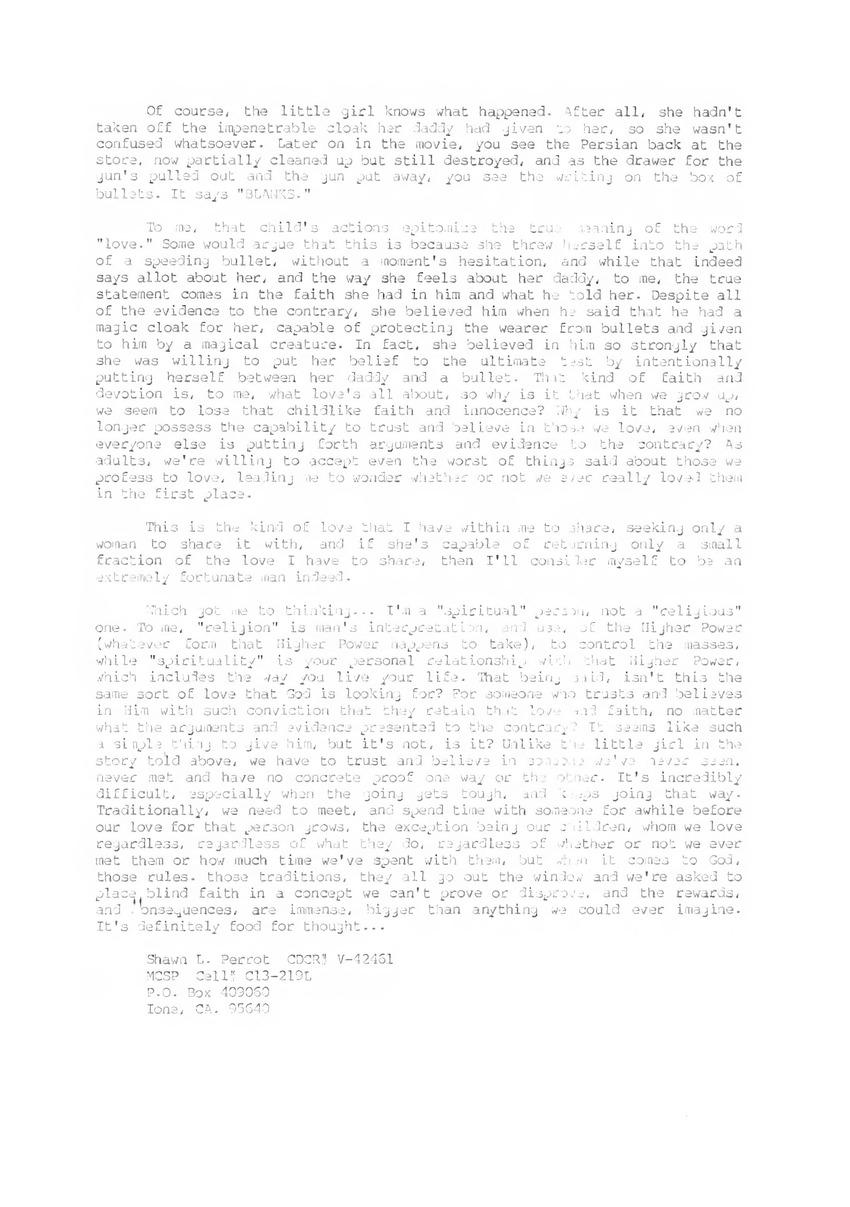

Replies